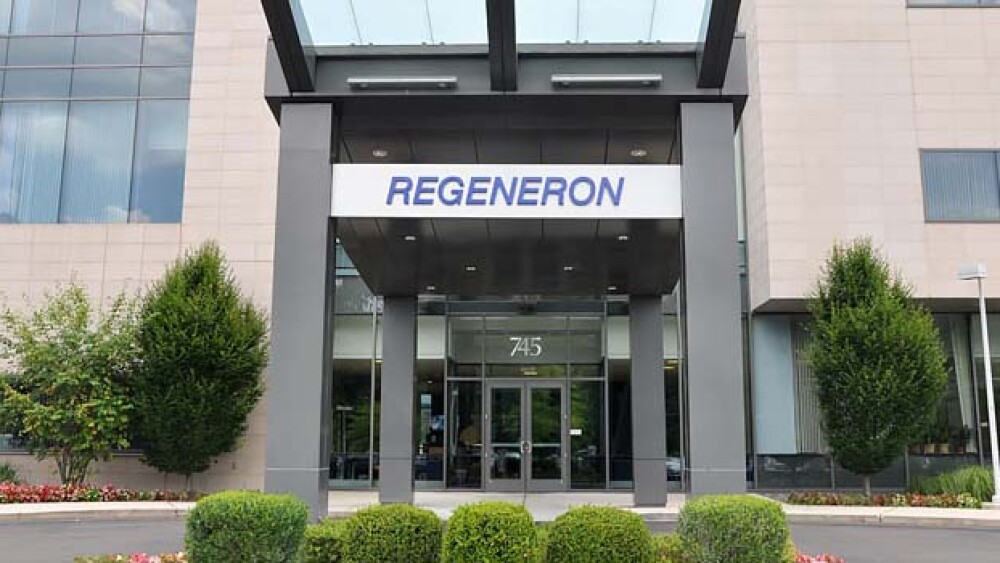Tarrytown, NY-based Regeneron Pharmaceuticals and Paris-based Sanofi restructured a 2015 agreement to develop immuno-oncology (I/O) treatments. That deal was scheduled to wrap in 2020, but the revision adds two clinical-stage bispecific antibodies to the collaboration.
Tarrytown, NY-based Regeneron Pharmaceuticals and Paris-based Sanofi restructured a 2015 agreement to develop immuno-oncology (I/O) treatments. That deal was scheduled to wrap in 2020, but the revision adds two clinical-stage bispecific antibodies to the collaboration.
The revision lets Regeneron hold all rights to its other I/O discovery and development programs. It gives Sanofi more flexibility in advancing its early-stage I/O pipeline by itself.
Under the terms of the restructuring, Sanofi is paying Regeneron $462 million, which is the balance due under the original 2015 deal. It covers Sanofi’s share of the I/O discovery program costs for the last quarter of 2018 and up to $120 million in development costs for the two new antibodies, as well as a termination fee for the other programs under the original deal.
Sanofi will have the right to opt into the BCMAxCD3 and MUC16xD3 bispecific programs once Regeneron shows proof of concept or when the funding already set aside is used up. Regeneron is committing up to $70 million to develop the BCMAxCD3 antibody for multiple myeloma and up to $50 million for MUC16xCD3 for mucin-16 expressing cancers.
After Sanofi opts in, it will lead development and commercialization of the BCMAxD3 bispecific and fund all development costs, with Regeneron reimbursing up to 50 percent out of its share of collaboration profits. Global profits will be shared equally.
After the opt-in, Regeneron will lead MUC16xCD3 development and lead commercialization in the U.S. Sanofi and Regeneron will share development costs and split global profits equally. Outside the U.S., Sanofi will lead commercialization.
The two companies’ ongoing work on developing and commercializing Libtayo (cemiplimab-rwlc), a PD-1 antibody, is not part of the revision. The FDA approved Libtayo for advanced cutaneous squamous cell carcinoma (CSCC) in September 2018. The two companies have submitted the drug application to the European Medicines Agency (EMA).
They are also investigation Libtayo in multiple other cancers, including lung, cervical and skin.
Libtayo is a fully-human monoclonal antibody that targets PD-1. It is the first and only treatment approved for advanced CSCC in the U.S. CSCC is the second most common type of skin cancer, responsible for about 7,000 deaths in the U.S. each year. It accounts for about 20 percent of all skin cancers in the U.S.
The FDA approved Libtayo under Priority Review and had granted it Breakthrough Therapy Designation for advanced CSCC in 2017.
At the time, Michael R. Migden, lead investigator of the pivotal CSCC clinical program and professor in the Departments of Dermatology and Head and Neck Surgery at The University of Texas MD Anderson Cancer Center, stated, “Today’s FDA decision is great news for patients with advanced CSCC, who previously had no approved treatment options. This is especially true because these patients are no longer candidates for curative surgery or radiation. Libtayo is an important new immunotherapy option for U.S. physicians to help address a significant unmet need in this patient group.”
Regeneron and Sanofi Genzyme market Libtayo jointly in the U.S.





